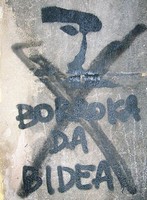Political conflict in the Basque Country has entered a new phase. In the past year, a reshuffling of political power in Spain has brought left-wing Basque nationalists to office in some major Basque cities and at the provincial level in Gipuzkoa, while ensconcing their ideological opponents, the conservative Popular Party (PP), in government at the national level in Madrid. Meanwhile, the announcement by the separatist extremist organization ETA in October that it was laying down its arms has raised hopes for an end to decades of secessionist violence.
But tough challenges have yet to be resolved. As long as opposing factions remain entrenched in past antagonisms, the Basque Country will remain stuck at a crossroads. The main political parties must come to grips with thorny outstanding issues and reach a settlement, or else continue a standoff with all the attendant risks of institutional paralysis, social and economic stagnation and, at worst, a possible return to the terrorism that has poisoned life for inhabitants of the region and other parts of Spain and France for more than 50 years.
Achieving a settlement will be difficult, as it requires all sides to step back from their previous uncompromising positions. Political parties must grapple with two central issues: the reintegration into Basque society of several hundred convicted collaborators of ETA now in Spanish and French prisons, as well as of countless others with links to the organization who are in hiding or in forced or voluntary exile; and acknowledgement of and potential compensation for the victims of violence on both sides, including not only those who suffered from the actions of ETA but also those who have been the victims of the Spanish and French states.

